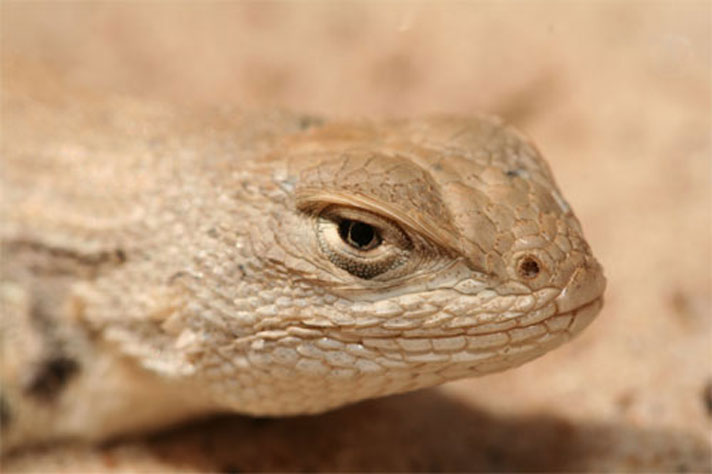Much of the dunes sagebrush lizard's habitat is found in oil- rich west Texas.
The state of Texas, which has been embroiled in lawsuits for years regarding protections, or lack thereof, for the dunes sagebrush lizard (Sceloporus arenicolus), has discontinued a state conservation plan for the species by submitting a letter from the Texas comptroller of public accounts to the U.S. Fish and Wildlife Service.

USFWS
Much of the dunes sagebrush lizard's habitat is found in oil-rich west Texas.
The site removed protections for the reptile in spite of a petition by the Center for Biological Diversity and the Defenders of Wildlife to list the lizard under the Endangered Species Act.
“The dunes sagebrush lizard needs every ounce of help it can get, but Texas and the oil and gas industry are determined to stand in the way,” Chris Nagano, a senior scientist at the Center for Biological Diversity said in a statement released to the media. “The only reason this rare lizard isn’t protected is political interference by the same fossil fuel interests rapidly destroying its habitat.”
Want to Learn More?
Texas Plan to Protect Dunes Sagebrush Lizard Never Released to Public, Advocacy Group Says
USFWS Proposes Endangered Status for Dunes Sagebrush Lizard
Texas Congressman Makes Push to Keep Dunes Sagebrush Lizard off Endangered Species List
Dunes Sagebrush Lizard Listing Delayed by Six Months
The Center in 2002 petitioned the USFWS to protect the lizard. In 2010, a proposal was submitted by USFWS to protect the reptile, but in 2012, then Texas comptroller Susan Combs, who is now acting assistant secretary for Fish, Wildlife, and Parks in the U.S. Department of the Interior, withdrew the proposal.
The lizard, has for the last several years, been a contentious issue for the state of Texas and the Texas oil industry. The agency that was set up in 2013 to monitor the voluntary protection efforts for the dunes sagebrush lizard was comprised of oil industry lobbyists, according to a report in the Texas Tribune. The Texas Habitat Conservation Foundation was formed, supposedly in an effort to ensure that the agreements laid out to protect the lizard were enforced.
Three years later in March 2016, Texas State Comptroller Glenn Hegar killed the foundation’s contract in February, citing the failure of the foundation to perform repairs on several sites that are sensitive habitat for the lizard. In May 2018, the Center of Biological Diversity filed a petition with the U.S. Fish and Wildlife Service to protect the tiny lizard.
Texas has submitted a new candidate conservation agreement for the lizard to USFWS, but the details of that agreement have not been made public.



